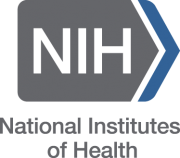Posted on October 15, 2019
Source: NIH

"Researchers at the National Institutes of Health and their colleagues at Massachusetts General Hospital (MGH) in Boston report that the injectable hormone tesamorelin reduces liver fat and prevents liver fibrosis (scarring) in people living with HIV. The study was conducted by the National Institute of Allergy and Infectious Diseases (NIAID) and the National Cancer Institute, both parts of NIH. The findings were published online today in The Lancet HIV."
“'Many people living with HIV have overcome significant obstacles to live longer, healthier lives, though many still experience liver disease,' said NIAID Director Anthony S. Fauci, M.D. 'It is encouraging that tesamorelin, a drug already approved to treat other complications of HIV, may be effective in addressing non-alcoholic fatty liver disease.'"
"Non-alcoholic fatty liver disease, or NAFLD, frequently occurs alongside HIV, affecting as many as 25% of people living with HIV in the developed world. However, no effective treatments currently exist to treat the condition, which is a risk factor for progressive liver disease and liver cancer. Investigators led by Colleen M. Hadigan, M.D., senior research physician in NIAID’s Laboratory of Immunoregulation, and Steven K. Grinspoon, M.D., Chief of the Metabolism Unit at MGH, tested whether tesamorelin could decrease liver fat in men and women living with both HIV and NAFLD. Among the participants enrolled, 43% had at least mild fibrosis, and 33% met the diagnostic criteria for a more severe subset of NAFLD called nonalcoholic steatohepatitis (NASH). Thirty-one participants were randomized to receive daily 2-mg injections of tesamorelin, and 30 were randomized to receive identical-looking injections containing a placebo. Researchers provided nutritional counseling to all participants, as well as training in self-administering the daily injections. Researchers then compared measures of liver health in both groups at baseline and 12 months."